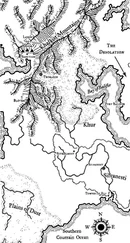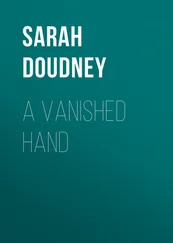That was the fault line in our relationship.
And, ultimately, maybe the force that would tear us apart.
Adrian Wellis lived in a tatty two-storey red-brick terrace house with a concrete garden and sheets for curtains. Behind it was a sink estate called The Firs: a monolithic series of concrete blocks, housing almost ten thousand people.
Outside it was still hot and airless: clouds didn’t move in the sky, leaves didn’t move in the trees, just the faint shimmer of a heat haze coming off the tarmac. All along the road, windows were open, but at Wellis’s gate there was a strange, eerie kind of silence to the place. No music. No kids. Only the distant sound of cars on the Old Kent Road and the occasional squawk of a bird. The doorbell didn’t work, so I knocked a couple of times.
No answer.
There were two mottled glass panels in the door. Inside was a hallway with three doors off it. Stairs off to the right. Close to the door was a light bulb with no lampshade.
I knocked again and waited.
The front garden was a mess; only a garden in name. Everything had been paved over and left to decay. The slabs were uneven, weeds crawling through the gaps between them. Four big concrete blocks were in a pile at the end of the driveway. On top was a flowerpot, no flowers in it, just earth.
When there was no answer for a second time, I headed out, down to the end of the road, and around to the back of the houses. Every home had a six-foot-high fence marked with a number. Wellis’s had been painted on, the paint running the full length of the gate and collecting in a pool on the step at the bottom. He’d never bothered cleaning it up. I tried the gate. It was locked.
Walking back around to the front, I knocked for a third time.
‘Mr Wellis?’
Again, nothing. No sound of movement from inside. I put my ear to the door, just to be sure, but the house was quiet. No voices. No television. For a brief second I thought about trying to pick the locks – then reality kicked in. In broad daylight, it was too risky.
All I could do now was wait.
24
27 February | Four Months Earlier
It was just before 9 a.m. when Healy walked past the visitor centre in the prison. Inside, a network of tables and chairs were bolted to the floor, populated by identically dressed prisoners and the people who had come to see them. Everything was under surveillance by CCTV, while guards circled the room, their eyes moving from table to table.
Beyond it, the corridor ahead looked sick: pale green linoleum, matching walls, empty noticeboards and reinforced windows into vacant, dark rooms. At the end was a counter, a window pulled across, with a guard on the other side at a computer. He had silver hair and milky eyes, half-moon glasses perched on the end of his nose. When he saw Healy approaching, he slid the window across.
‘How you doing, Colm?’
‘Pretty good, Clive. You?’
The guard nodded. He had a slow, considered style, which Healy had never been able to read in all the years he’d known him. It could have been age, or it could have been a natural distrust of people. ‘You’re late today,’ the guard said.
‘Yeah, I know.’
‘Well, you better get going.’
Healy’s eyes drifted up for a second to the sign on the wall above the window. Black letters on peeling white paint: ‘High Security Unit’.
‘Yeah,’ Healy said. ‘I better get going.’
After passing through security, he moved along another corridor, doors on either side, the distant sound of voices audible. The prison cells were directly adjacent, though there were no windows until he got to the end of the corridor. He slowed up. Two rooms, both behind security doors, but with reinforced glass panels that Healy could see in through. He stepped up to the first.
Inside, seven men were seated on chairs in a semicircle. Different faces, different builds, but all dressed in prison uniforms. Healy got in even closer to the glass. As he angled his body, he saw her. The psychologist. All the prisoners were watching her. She was perched on the edge of a chair opposite them, talking.
‘There you are,’ Healy said quietly.
It was biting cold as he waited in his car outside. Snow was shovelled into piles all around him, the early morning still blanketed by a fuzzy kind of half-light. After a couple of minutes, the woman exited the prison and started to head out across the car park. Her scrawny frame was hidden beneath a sheepskin coat, her hair tied into a messy, uneven ponytail, her eyes fixed on her phone. Ever since his return to the Met, he’d been using the database to find out about her, looking into her life piece by piece, building a picture of who she was. But not within sight of Craw. Not within sight of anybody else.
Her name was Teresa Reed. Forty-eight. Divorced, no kids. She’d been coming to the prison on weekly visits for nineteen months. Same day every week, same purpose: to interview and talk to the prisoners. To Healy, none of that really mattered, other than the fact that she didn’t have kids. That suited him fine. If she’d had kids, it would have made it harder to formulate his plan, and harder still to execute it. With kids, there was guilt, fuzzy thinking, emotion, a million reasons not to hurt her. Without them, she had no responsibility to anyone but herself, and no one to miss her.
He got out of his car and pretended to fiddle around in the pocket on the driver’s door. He’d been watching her for almost six weeks, and today was the first day he was making any sort of contact with her. He glanced up to see her getting closer. Healy had parked here for a reason: it was right next to her Mini. She had to come across him, and step in next to him, to get to her car.
He heard her shoes in the slush about six feet away from him, closed the door of his car and then purposely bumped into her without looking.
‘Oh, I’m sorry,’ he said, looking at her.
She glanced at him. ‘No problem.’
They stood like that for a moment, across from one another, and he saw how old she looked close up. Weathered. That’s what happens when you spend your life making nice with scumbags . Healy frowned. ‘Do I know you?’ he said.
She returned the frown. ‘I don’t think so, no.’
‘You’re not Teresa, are you?’
Her face softened. ‘Yes,’ she said, and then paused, obviously embarrassed she didn’t recognize him. ‘I’m so sorry … I can’t quite place your, uh …’
He held up a hand, forced a smile. ‘It’s fine. Colm Healy. I work at the Met. I think you came into my station after the riots last year.’
Her mouth formed an O . Healy had checked all this. He didn’t know her and had never met her, but he’d found her in the system when the station chief superintendent, Bartholomew, had had some ridiculous idea about getting psychologists involved in the interviewing of looters. There was no thought behind it other than getting him into his favourite place – the papers – but Teresa Reed had been one of the shrinks he’d brought in.
‘Anyway,’ Healy said, locking the car. ‘Nice to meet you again.’
‘Yes,’ she said. ‘You too.’
He left her, walking off towards the prison building. When he heard her Mini start up and drive off, he turned around and headed back to the car. Unlocked it. Slid in at the wheel. His heart was beating fast and his palms were slick with sweat, even in the cool of the morning. Slowly the windows of the car began to steam up and he wondered whether he was doing the right thing. But then he felt the burn of grief and anger in the centre of his chest, and any doubts were washed away.
25
While I watched the house, I used my phone and went searching for Wellis online. Facebook was the world’s greatest detective. Inside a minute you could get yourself a picture. And if there were holes in their privacy settings, seconds after that you had their whole life. It was even easier if you had an unusual surname. My Facebook account was a shell – no details, no photos, no posts – but it got me access to other people’s, and although I couldn’t see Wellis’s wall, info or friends, I could see all his photos.
Читать дальше












